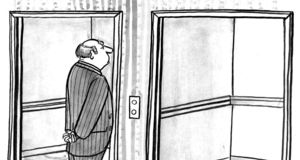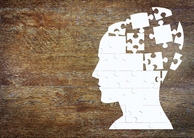Featured Article:Would You Cheat? Cheating Behavior, Human Nature, and Decision-MakingIn order to examine the grace effect, results from preprinted/all whites and preprinted/fair distribution were compared. It turned out that this effect is present but only among women – declarations of whites was about 53% in fair distribution condition and about 81% in all whites condition. There was no significant difference among men (69% in fair condition, 67% in all whites condition). Conversely, the will effect, examined as comparison between handwritten and preprinted, was present among males – in all whites condition, whites were declared 67% time in preprinted condition, as opposed to 92% in handwritten condition. No significant effect was observed in case of females. This study provides an interesting insight into gender differences in cheating patterns. Men actively consider cheating to a greater extent than females without remainders about its possibility and when they see that other cheat, almost all of them decide to do the same. Women cheat to the same extent that men but only when some additional cues are provided. Moreover, perceiving that others cheat led to release from moral constraints only among males. The interaction between will and grace effects is somewhat complex. Different people seem to respond differently to perceived stimuli. Where do these differences come from? Having taken ethical obligations (or more precisely – reputation concerns) into consideration, economic models still deem self-interest to be pervasive. Moore and Loewenstein (2004) argue for a dual-process view of ethical decision making where self-interest is an automatic and unconscious process, whereas ethical obligations are considered in thoughtful processes. Consistently with will hypothesis they ascribe more power to self-interest, leaning toward rather a corrupt view of human nature with one additional assumption – that by using reason people are able to decide ethically.On the other hand, research in contemporary moral psychology shows that people have evolutionarily grounded intuitions about what is right and wrong and that they automatically and unconsciously feel it when facing moral dilemmas (Haidt, 2001, 2007; Haidt & Bjorklund, 2008). Consistently with this tradition, numerous models from different fields proposed that in order to engage in immoral act people have to first cognitively reconstruct the situation (see, for example, Bandura, 1986, 1990, 1991; Sykes & Matza, 1957). An underlying assumption beyond these models is that people naturally realize what is the ethically correct solution and that it is the default option that needs to be overcome. Xu and Ma (2014) provide a possible explanation for individual differences in cheating patterns. As they argue, the critical factor here is the accessibility of moral constructs that make up one’s moral identity. When people have high moral identity then honest behavior becomes natural to them and can result from automatic processes, as opposed to people with low moral identity who have to actively resist temptation. They conducted a study in Greene and Paxton’s (2009) paradigm in which they replicated the general finding that different types of people respond differently to temptation – for generally honest subjects there was no need to apply cognitive control in loss trials, as opposed to generally dishonest subjects who had hard time conceding that they had just lost. In addition, researchers found that priming participants by instructing them to read honesty-related story decreased cheating what supports moral construct accessibility hypothesis (see also Shalvi & Leiser, 2013). Alternatively, it may be the case that both views are to some extent correct. Moore and Tenbrunsel (2014) argue that the relationship between morality and thinking is not linear. Specifically, they propose that unethical decisions are associated with both the lowest and the highest levels of cognitive complexity. In their model, self-interest is the primary force at the beginning, then in moderate amounts of thinking people start to realize norms and act according to them, but when too much deliberation is allowed, they start to engage in moral reconstruction of situation that eventually leads to unethical choice. Their study was based on online survey consisting of moral dilemmas involving one’s own self-interest conflicted with greater social good. They found some support for their model – most ethical choices were associated with moderate levels of reasoning, but since their study did not involve hardcore cheating, absolute generalizations cannot be inferred. Another account for different influences of reasoning was provided by Paharia, Vohs and Deshpandé (2013) who studied people’s attitudes toward sweatshop labor. It turns out that also some situational factors may have an impact on the role of reason. Conducted experiments showed that people were more likely to endorse questionable justifications for the use of sweatshop labor when they considered buying product of high desirability, as opposed to one of low desirability what suggests that people are indeed using motivated reasoning when they want to reach conclusions they prefer (see also Kunda, 1990). In other words, conceding that potentially desirable behavior is wrong occurs more likely when we do not really want to engage in it. This effect disappears under cognitive load. This study confirms that people engage in moral disengagement when classifications of behaviors are ambiguous thereby inviting favorable interpretation (see also Schweitzer & Hsee, 2002). On the other hand, when such ambiguity is eliminated and there is clear right and wrong what makes the use of justifications more difficult, the role of cognition becomes reversed – people start to perceive that considered behavior would be seen as bad by both themselves and others (see also Gunia et al., 2012). It is worth noting that cheating is rather a peculiar type of unethical behavior. It is not a violent crime, but rather one that is achieved furtively. This difference has profound influence on psychological mechanisms that govern it. As opposed to personal misdeeds, there is no negative affect associated with it. People have evolved an aversion toward harm that works through physiological mechanisms causing stress when one contemplates or watches potentially harmful actions (Cushman, Gray, Gaffey, & Mendes, 2012). As a result, these reactions are present when victim is salient but absent when he or she is not. Even though different crimes involving direct versus indirect harm may be equally harmful, there is higher psychological cost associated with personal violations (Greene, Sommerville, Nystrom, Darley, & Cohen, 2001). Thus, automatic moral instincts that prohibit immoral behavior are absent in considerations about cheating and a reversed role of cognition emerges. Because self-interested reward seeking becomes primary process, cognition may be used to realize moral obligations, rather than to fulfill the need for cognitive reconstructions necessary to justify misbehavior. That was the case in studies by Shalvi et al. (2012) and Gunia et al. (2012). Moore and Loewenstein (2004) pointed out that whereas self-interest is the primary force is economic decisions concerning money, it may not be the case in other domains. It seems that the crucial difference here is the presence of aversive cues that evoke an automatic intuition of wrongness. A study conducted by Ruedy, Moore, Gino and Schweitzer (2013) supports this interpretation. They had participants solve as many anagrams as they can in a fixed amount of time. After that participants self-checked their answers by comparing them to an answer sheet. This provided them an opportunity to cheat by writing some additional answers on their worksheets. What participants were not aware of, was that under their worksheet during the task was placed a copy paper which was collected after the time passed. Experimenters compared affect of cheaters and non-cheaters as measured by self-reports both before and after the task and it turned out that affect of cheaters was increased to a larger extent than affect of non-cheaters. This effect was present when participants cheated for money and in a subsequent study involving logical problems that were supposed to measure intelligence – for reputation. These results suggest that people are not experiencing negative affect when they are cheating as opposed to different acts deemed to be immoral. Moreover, they experience positive emotions in association with their behavior. Authors propose that this effect occurs due to a thrill of getting away with cheating. Some additional factor might be successful reward acquisition associated with increased activity in subcortical regions of the brain (Abe, 2011). Nevertheless, mental categorization of given situation has an influence on ethical decision-making. Opportunities for cheating may be different – in some cases it may be easier to make unethical decision, in other quite harder. Jiang (2013) conducted a study in which order of steps in an instruction for the experimental task affected cheating. Specifically, subjects were rolling a die in order to determine payoff, but before they did it they had to choose which side would count toward their earnings (facing up or down). In one condition subject were instructed to: (1) choose a side, (2) throw a die and (3) write down the chosen side (throw-first condition); in the other condition they were instructed to choose a side first, then to write it down and roll a die at the end (write-first condition). These were only instructions and participants could change the order if they wanted to so cheating was possible in both treatments. It turned out that subjects in the throw-first condition lied more. But why the (suggested) order of steps made a difference? The answer is that it lies in self-perception of intention. When people were instructed to write first their choice in order to cheat they had to deliberately change the order by throwing first what had greater negative impact on self-image. It becomes apparent to an individual that cheating is planned and it is not compatible with the desired self. When people were instructed to throw first, cheating was much easier – it sufficed to strategically misremember one’s actual choice and to recall more favorable one at the end. Such design invites cheating by itself because people have less time to cognitively realize their selfish impulses and as a result they are more likely to prevail. Moreover, reaction time for honest decisions in the throw-first condition was longer than in the write-first condition what suggests active resistance of temptation, consistently with the will hypothesis.Continued on Next Page » Suggested Reading from Inquiries Journal
Inquiries Journal provides undergraduate and graduate students around the world a platform for the wide dissemination of academic work over a range of core disciplines. Representing the work of students from hundreds of institutions around the globe, Inquiries Journal's large database of academic articles is completely free. Learn more | Blog | Submit Latest in Psychology |


















